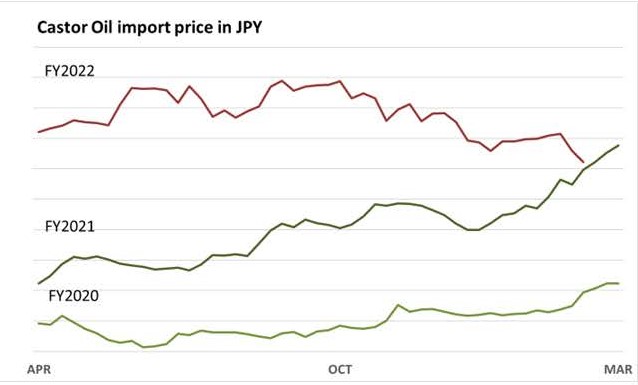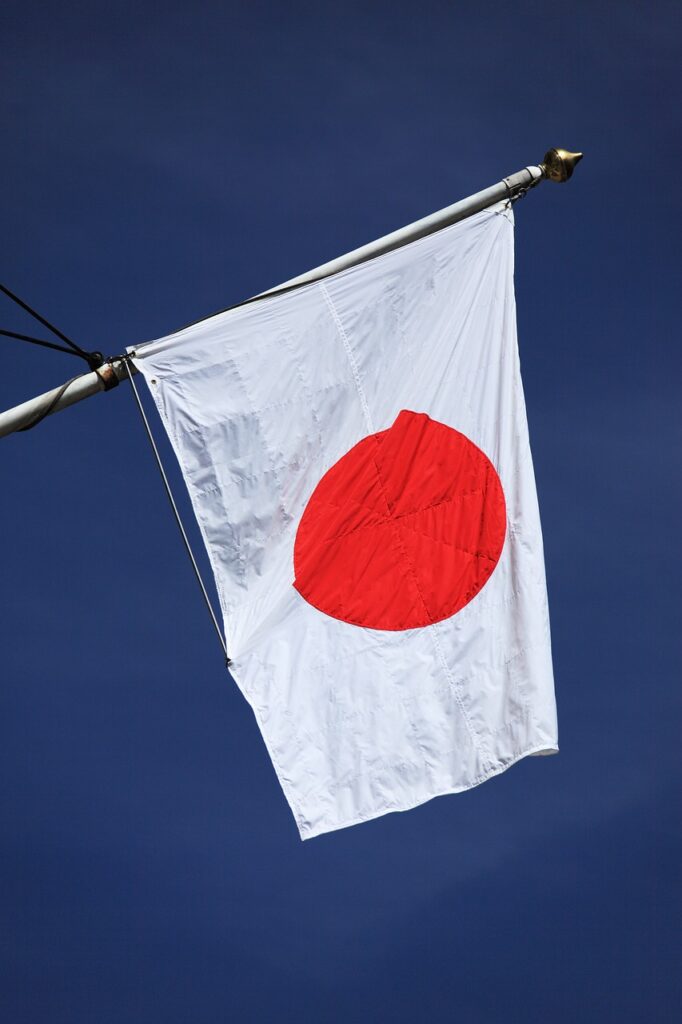By: Mr. Takuya Katayama, Itoh Oil Chemicals Co., Ltd.
The Japanese economy is on a gradual recovery trend with the rebound of domestic demand from late 2022 and forecasted to continue in 2023. Inflation has been controlled at the optimal range, less than 2%, through the last year, however from the beginning of this year, CPI and WPI stated to rise due to the depreciation of Japanese yen. That should push down consumer spending and pent-up demand. In 2022, Japan imported 17.2 thousand tons of castor oil, down by 6 % from the previous year.
The demand for oil and its derivatives were stable in most of applications, such as coating, adhesive and lubricant. Automobile production volume and investment for construction are the key indicators which determine the castor oil demand in Japan. As automakers are idling their production lines in 2022, not only because of COVID but a shortage of microchips as well, production volume slightly dropped from the previous year. Although the economic vulnerability has been seen overt the year, construction investment increased by 0.6% in 2022 from the last year, and being forecasted to keep growing in 2023, thanks to the large-scale redevelopment projects and building semiconductor factories.
Having said that, import amount of castor oil decreased due to the quite high market price. Importer and user intended to keep low stock level and purchased minimum amount with expecting the price will come down. Import price in Japan was all-time high through the year 2022, even higher than the rocketing price of 2011 as Japanese yen depreciated, yearly average of exchange rate to US$ was 131.48 in 2022 which was 65% weaker than 2011. Once the market price falls, inventory investment on castor oil will be seen and demand is picking up especially from the 2nd half of this year.
On the long- term view for castor oil, it has a great opportunity to grow further as green material. Japanese government’ declaration of GHG emission reduction target for 2030 and carbon neutrality goal by 2050 are the tailwind for castor oil, however that is same for other industrial vegetable oil, therefor we need to promote the technological development and material utilization to compete with other materials. Also establishing the sustainable supply system and price stabilization are necessary to win the competition.


